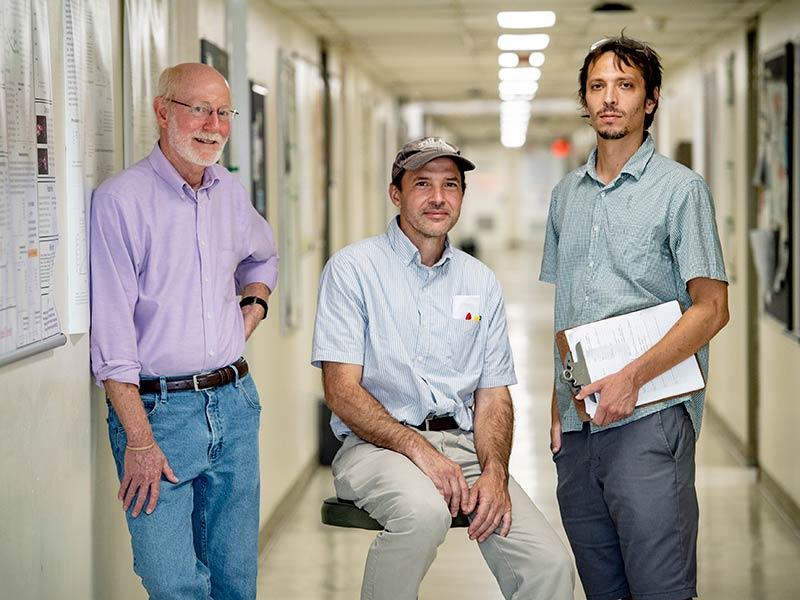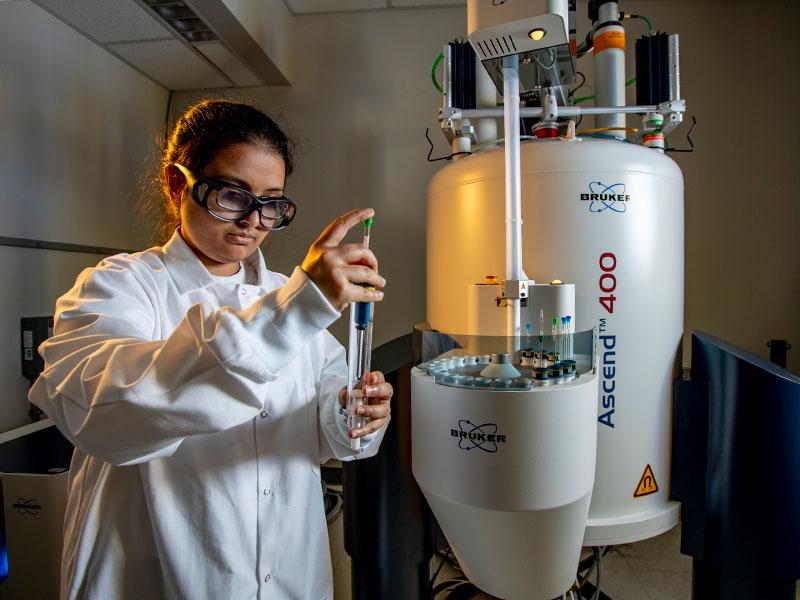Tulane chemists to create clean hydrogen fuel using water, sunlight
Hydrogen is an indispensable chemical for important processes such as ammonia production. But producing industrial hydrogen is often energy intensive, environmentally unfriendly and unsustainable, according to scientists at Tulane University.
“Hydrogen will only truly be ‘clean’ when it is produced from water using renewable energy, as opposed to the current predominant method, which uses methane gas and produces large volumes of carbon dioxide,” said James Donahue, PhD, a chemistry professor in the Tulane School of Science and Engineering.
Over the next three years, Donahue and a team of Tulane chemists will use a $1.3 million grant from the U.S. Department of Energy to develop a process for producing clean hydrogen from water and renewable energy. The project is part of a $540 million federal initiative geared to address climate change through clean energy technologies and low-carbon manufacturing.
Tulane will develop a catalyst, a substance that speeds up a chemical reaction, that can be put to the test in systems that use solar energy to make hydrogen from water. The most ambitious goal of the project is to develop a fully integrated photochemical water-splitting system using sunlight to convert water to both hydrogen and oxygen.
“The new catalysts will be put to the test in systems that use the sun’s energy to produce the electrons necessary for them to do their work of making hydrogen from water,” Donahue said.
The Tulane team includes Assistant Professor Alex McSkimming, PhD, and Professor Russell Schmehl, PhD. Donahue and McSkimming are inorganic synthetic chemists, while Schmehl is an inorganic photochemist.
Tulane is one of 65 institutions — 54 universities and 11 national labs — from across the United States taking part in the Department of Energy initiative. In announcing the awards, U.S. Secretary of Energy Jennifer M. Granholm called the research crucial to meeting President Biden’s goal of creating a net-zero emissions economy by 2050.
“Meeting the Biden-Harris Administration’s ambitious climate and clean energy goals will require a game-changing commitment to clean energy — and that begins with researchers across the country,” Granholm said. “The research projects announced today will strengthen the scientific foundations needed for the United States to maintain world leadership in clean energy innovation, from renewable power to carbon management.”
Projects were chosen by competitive peer review and cover a wide range of topics, including solar and nuclear energy technologies, energy storage, carbon capture, novel manufacturing processes and more efficient use of critical minerals in energy technologies and manufacturing.


